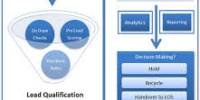Work Simplification is the conscious seeking of the simplest, easiest, and quickest method of doing work. This is the method in which complex job is first divided into a number of small simple activities or units. It is the use of special equipment, ergonomics, functional planning, and behavior modification to reduce the physical and psychological stresses of home maintenance for disabled people or their family members.
Work simplification research consists of making motion and time studies of the work as it is being done, analyzing the work methods, developing the easiest and most effective way to do the task and putting the new method into use. Similar activities need to be grouped into a work unit and each work unit is assigned to a worker. It is accomplishing more tasks within a given amount of time. Improvement in doing a piece of work can be made by means of work simplification. Organizations are simplifying work in response to employees becoming overwhelmed by increasing organizational complexity, growing information overload, and a stressful 24/7 work environment. Jobs and assigned to employees on the basis of specialization so that the productivity can be improved through work specialization. Work units into a job are estimated to be repetitive. This further increases the work efficiency. This method is appropriate for the lower level employees.
Merits of Work Simplification:
- Jobs are made more simple therefore no need to have training and development expenses.
- This method focuses on job specialization so that the productivity can be improved.
- Less supervision can be sufficient to supervision employees.
Demerits of Work Simplification:
- There will be a high chance of over specialization of skills.
- Repetitive job creates boredom in workers.
- Monotony at work may increase absenteeism, turnover, and accidents.
Information Source:
















